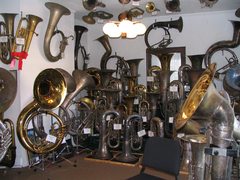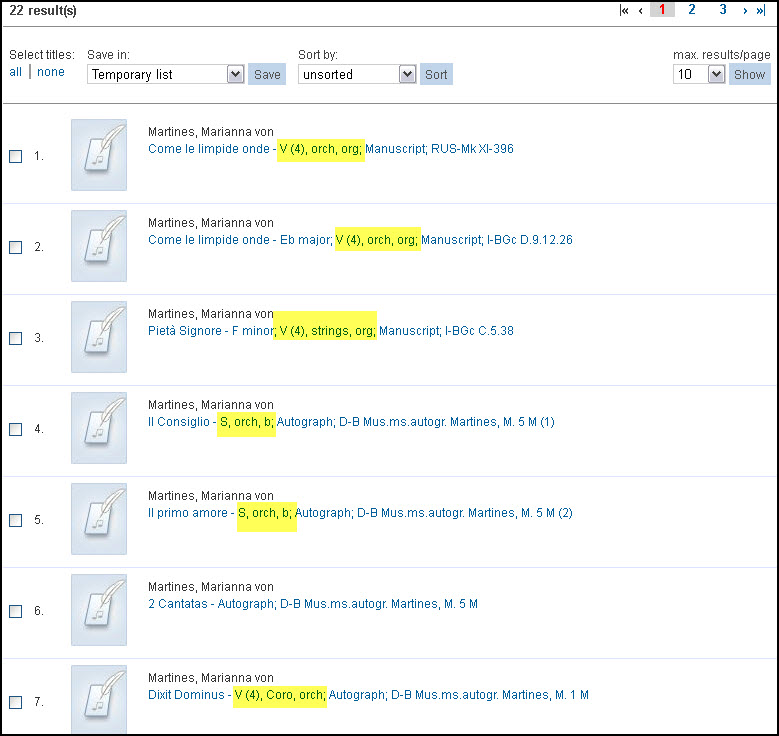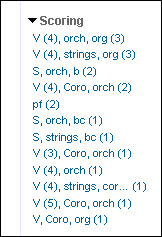Searching by Instrumentation in RISM
Monday, December 12, 2016

With the release of Muscat, our new program for cataloging sources, we took the opportunity to clarify our guidelines for our RISM contributors. One of the results of this is a new, more complete list of RISM instrument abbreviations. We thought we’d also share this improved list with you–the users of the online catalog–and show you how it works.
The list of RISM instrument abbreviations is available to both RISM catalogers to assign to music as they are cataloging it, and to users when they are searching the online catalog. Instruments can be searched either through a general simple search or through the Advanced Search using the field Scoring. And let’s get this straight up front: by “instrument” we mean all instruments, including vocal parts.
Our “abbreviations” are actually more like standardized terms. Sometimes we use actual abbreviations, such as vl for violin or ob for oboe. In other cases, we use the Italian term whenever possible, such as saxofono for saxophone. General terms, such as strings or winds, are written in English. Regional instruments are written in the original language, such as chirimía for a type of Spanish double-reed instrument.
This hodgepodge of practices resulted in a long list that was quite difficult to use, especially for the uninitiated. The list was arranged alphabetically, but today we’re trying something new. The list of RISM instrument abbreviations is now sorted by instrument family and then from highest to lowest range or alphabetically.
When you do an Advanced Search and select the field Scoring, a window appears with the abbreviations in one column, arranged by instrument family, and the English term in the other column. A fuller explanation in English, German, French, and Italian, along with links to images, is available on the catalog’s Help page.
Please note that the field Scoring searches what we call the Scoring summary. As its name implies, this is a summary of the total instrumentation for the work, so orch will find works for orchestra rather than entering each possible instrument, and V (2) will find works for vocal duet.
After you do a search, your results list includes the scoring summary.

The filters on the left also filter by scoring summary.

You can also do a simple search (All fields) to search by instrumentation, but this is generally more effective if you have a more unusual instrument, such as bombarde. This instrument is not likely to appear in the scoring summary (0 results in the Scoring search), but it is indexed in the full instrumentation (156 results in All fields).
Is this new list helpful to you? Do you have any questions about the instrumentation? Please give us your feedback in the comments below!
Image: Historic tuba collection, Tuba Exchange, Durham, North Carolina. Via Wikimedia Commons.
Share Tweet EmailCategory: RISM online catalog

